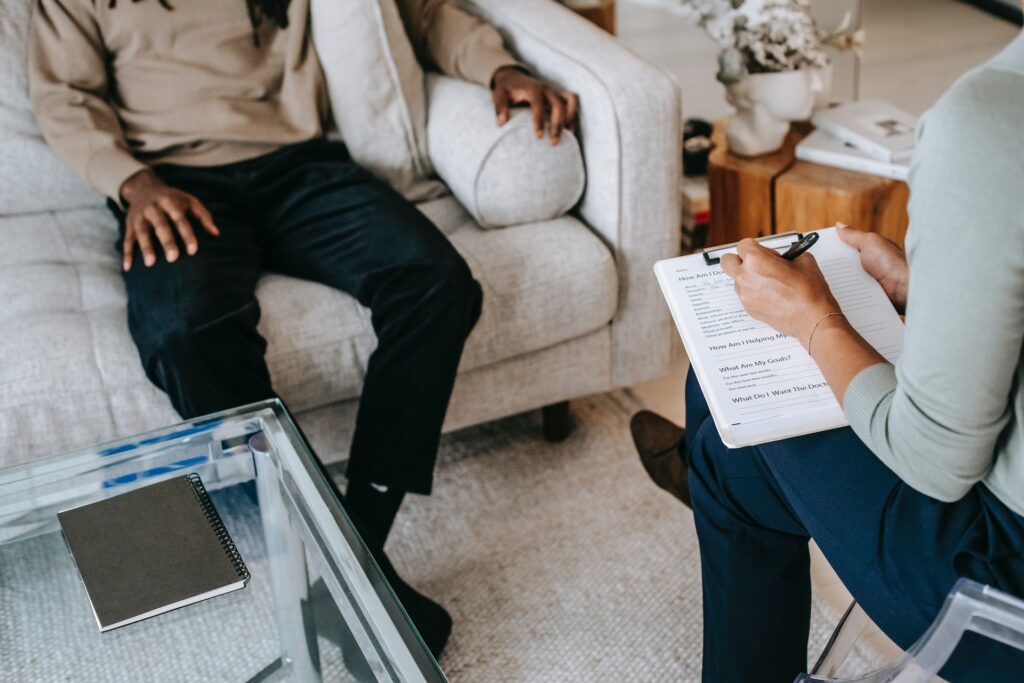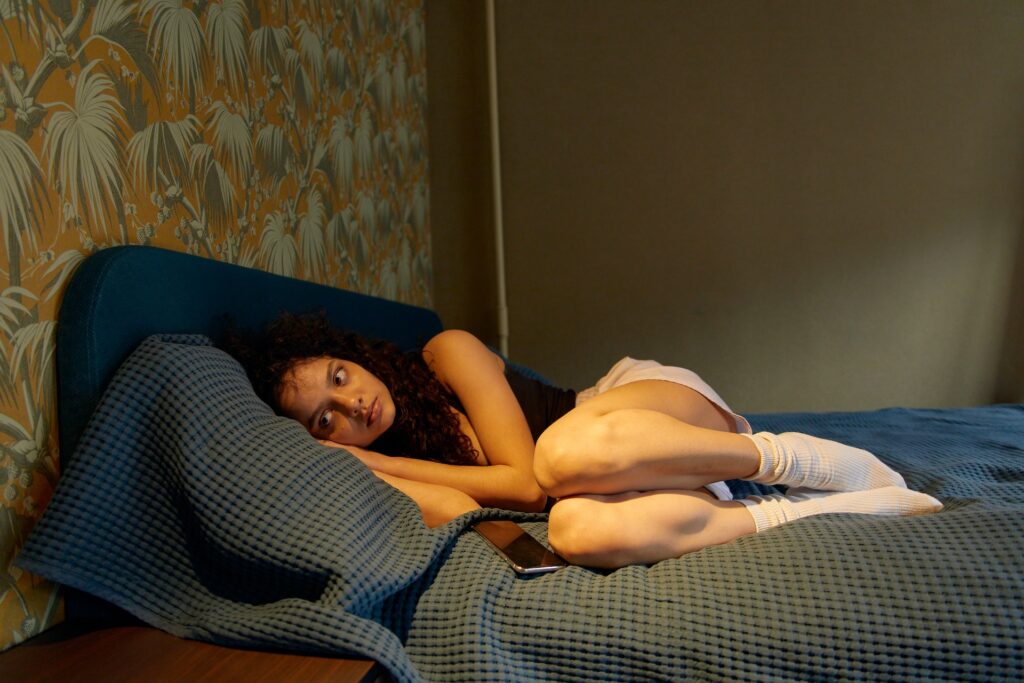We all suffer from anxiety to some degree, it’s a question of how much is reasonable and justified vs. living in a constant state of fear for no specific reason.
Because we are in the midst of a pandemic and the unpredictable and volatile state of the country, it seems we are all anxious. I oftentimes feel helpless, not able to fix what is unfixable, at least by me. But my anxiety is temporary, I often get over it by simply turning off the TV, and not watching the news for a while. But those who have chronic anxiety and depressive conditions, have a difficult time turning it off and really struggle with these debilitating disorders.
I can offer simple solutions, as a temporary measure, that can help with reducing anxiety. Breathing for example is key, and is often recommended by doctors as well. It really does work, especially when you are having an anxiety episode.
By taking a 5-count slow inhale, hold it for 5-counts and then exhale for 7-counts, it slows down the nervous system. Try that 5 times and you will start feeling calm, and more relaxed. I use this relaxing technique when I feel stressed, and it helps.
Understanding Anxiety
In order to treat anxiety, you must first identify it as such. A common sign of anxiety is a persistent worry about everything and anything, mostly everyday situations. This constant worry is intense and excessive, and can physically affect individuals. Some of the physical symptoms of anxiety include fast heart rate, rapid breathing, sweating, fatigue, and can even cause a feeling of pins and needles anywhere in the body.
Common symptoms of anxiety include:
- Excessive worry
- Feeling restless or on edge
- Difficulty concentrating
- Irritability
- Muscle tension, headaches, muscle aches, stomachaches, or unexplained pains
- Insomnia
Aside from psychological symptoms, anxiety symptoms can also be cognitive, where people constantly worry about something, stopping them from functioning correctly. Some of the cognitive symptoms include difficulty focusing on tasks, difficulty sleeping, lack of motivation, and chronic restlessness.
Types of Anxiety
There are different types of anxiety disorder, they include:
- Generalized anxiety disorder: This is the most common anxiety disorder and is characterized by excessive, uncontrollable and irrational worry about everyday things. Symptoms of generalized anxiety disorder include restlessness, fatigue, irritability, muscle tension and difficulty concentrating.
- Panic disorder: This disorder is characterized by intense panic attacks which are typically sudden and unexpected. Symptoms of panic attack include chest pain, dizziness, nausea, sweating trembling and heart palpitations.
- Social anxiety disorder (social phobia): This disorder is characterized by an intense fear of social situations or being around people. Symptoms of social anxiety disorder include difficulty talking to others, feeling self-conscious or embarrassed,
- Phobia-related disorders: This disorder is characterized by a fear of certain situations, objects or activities. Symptoms of phobia-related disorders include fear, anxiety and avoidance of the feared object or situation.
Each of these anxiety disorders has its own set of symptoms and requires treatment that is targeted for that specific disorder.
Anxiety Risk Factors
There are various risk factors that can increase the likelihood of developing anxiety disorder, including a family history of mental health problems, chronic stress, trauma, as post-traumatic stress disorder (PTSD), or a genetic predisposition.

Anxiety disorders are treatable, and there are various treatments available depending on the type of anxiety disorder. Treatments for anxiety disorders can include medication, therapy, hypnotherapy, relaxation techniques, and lifestyle changes.
Anxiety Treatments
Hypnotherapy is a type of therapy used to treat anxiety and other mental health conditions. It involves guiding a person into a state of relaxation (hypnotic state), where the subconscious mind can be accessed and reprogrammed to help reduce anxiety symptoms. In hypnotherapy for anxiety, the use of hypnosis techniques can help people re-frame thoughts that trigger their anxiety and replace them with more positive ones. The hypnotherapist can also use visualization techniques to help the person imagine a more relaxed state of being.
Other treatments for anxiety include psychotherapy, cognitive behavioral therapy, mindfulness-based stress reduction, and medication.
Psychotherapy focuses on exploring and resolving the root causes of anxiety through talking and behavioral techniques. Cognitive behavioural therapy (CBT) helps individuals identify and reframe negative thoughts and behaviors that contribute to anxiety.
Mindfulness-based stress reduction involves meditation and relaxation techniques, while medication can be prescribed by a doctor to help manage anxiety symptoms.

It’s important to note that each individual may respond differently to different treatments for anxiety, which is why it’s important to work with a qualified mental health professional to determine the best course of action. Hypnotherapy for anxiety can be a beneficial tool for those looking for a complementary treatment to traditional therapy or medication. By accessing the subconscious mind and reprogramming negative thought patterns, individuals can find relief from anxiety symptoms and enjoy a more peaceful state of mind.
Can hypnosis help anxiety?

Hypnotherapy can be a great way to treat anxiety. It helps to relax your mind and body, as well as get rid of stress-inducing thoughts that cause anxiety. Through hypnosis, you can access the subconscious mind which is the root of all mental health issues. The subconscious mind holds the key to unlocking emotional blocks that prevent us from feeling positive
Is there a connection between anxiety and depression?
Anxiety and depression are very closely related. While anxiety is generally considered a high-energy state, depression is a low-energy state. With that said, a person that suffers from depression can experience a lot of anxiety and even panic attacks.
Those with severe anxiety disorders might find that breathing exercises alone do not provide complete relief and need to consider other treatment options. A good starting point for individuals with major depression or other mental health conditions is to seek a professional for medical advice, diagnosis, or treatment.
Most of the time, generalized anxiety disorder and depression are treated with medication prescribed by a health care provider. This is because most insurance companies don’t fully cover therapy. Unfortunately, there is a myriad of side effects associated with these drugs and you will need to be watchful of any changes in your body if you’re following an anxiety treatment that involves medications.
You are not alone. The rest of the world suffers as well and I know it brings me comfort knowing this.
Can hypnosis help with Anxiety?
Hypnotherapy can be used to help individuals suffering from anxiety. It involves relaxation techniques, visualization, and positive reinforcement that can help individuals gain control of their emotions and physical symptoms. Through hypnotherapy, people learn to recognize anxiety-producing situations and how to use relaxation techniques to manage their stress levels.
Does hypnotherapy actually work for anxiety?
With hypnotherapy, the therapist will create a safe environment and use relaxation techniques such as guided imagery in order to help the person relax. Once relaxed, the therapist can then work on reducing stress and helping the person reframe their thoughts.
Recent studies have shown that hypnotherapy can be an effective treatment for anxiety, with some studies showing significant improvement even after just a few sessions. However, it’s important to note that hypnotherapy is not a stand-alone treatment and should be used in conjunction with other forms of therapy or medication as advised by a healthcare professional.
It’s also important to seek out a certified and experienced hypnotherapist to ensure the best possible outcome for your treatment. Don’t hesitate to speak to your healthcare provider today to see if hypnotherapy could be a helpful addition to your anxiety management plan.
What I really love is using hypnotherapy to help treat anxiety in my clients. While in a hypnosis state, you become hyper-focused and more open to suggestions. With your focused attention and in a relaxed state, I will show you new ways of thinking and reinforce that with suggestions that you will understand and absorb.
During our hypnotherapy sessions, I will give you tools to use when you feel yourself slipping back into old patterns of being and doing. I will help you look forward instead of back and stay in the positive and allow yourself to let go of the negative.

Learning to think in the positive is empowering, whereas thinking negatively will drain your energy. This may seem impossible, especially if this is your go-to pattern, but with anxiety hypnosis, we can create techniques for you to switch gears effortlessly. If you’ve come to see me, then you are already in the process of change; you’ve made that commitment to yourself to modify your behaviour for the better.
Does hypnosis work for anxiety? Only you know what’s right for you, what you are comfortable with so I will listen to you and guide you in the best way FOR YOU. There is no script and my work with you is geared toward you and what you communicate to me during our session.
Come make an appointment for an initial consultation with me, email me at janet@healthbyhypnosis.com to explore the benefits of hypnotherapy together and create positive change in your life.
Related post: Smoking Cessation and Hypnotherapy


